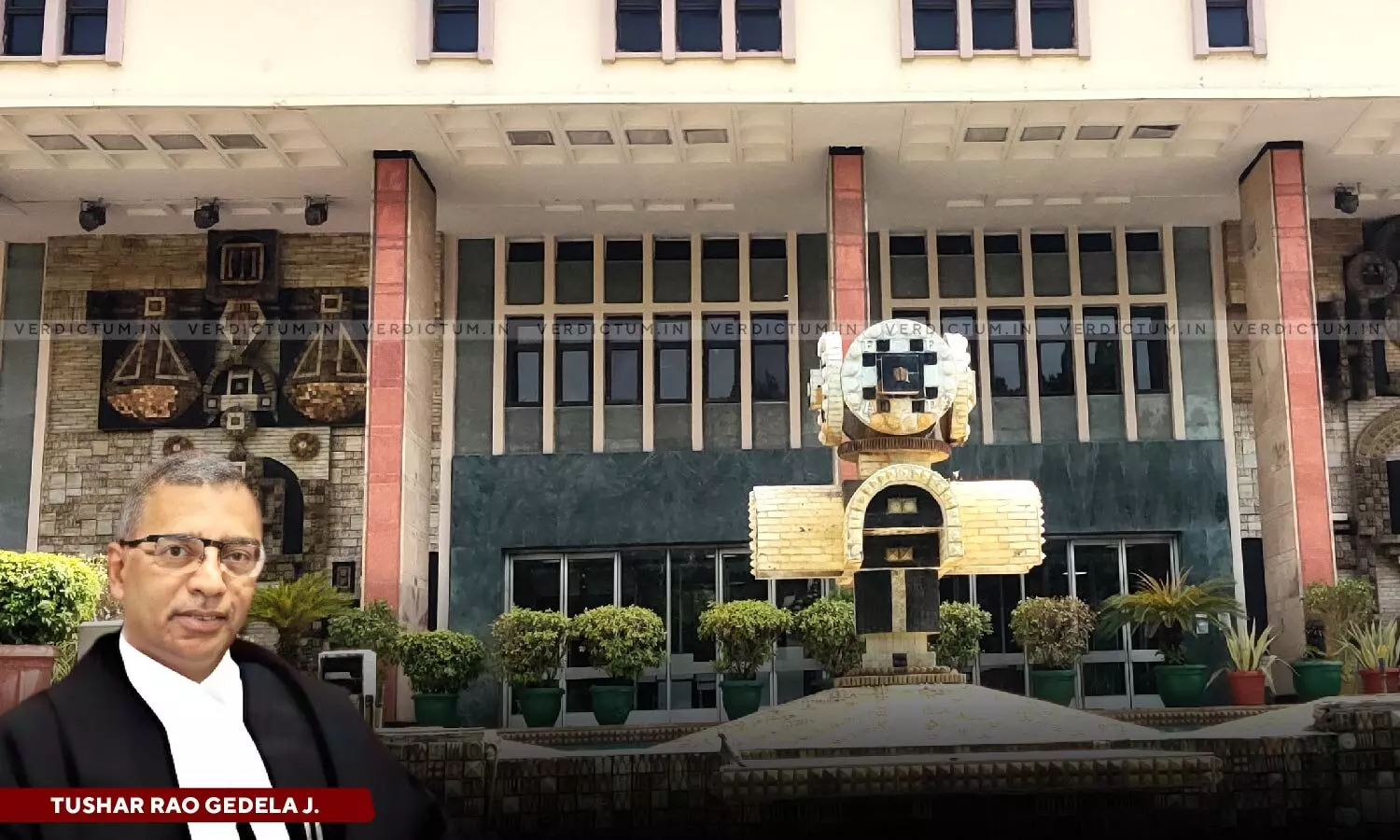
Once Grounds Of Arrest Stand Conveyed To Accused, There Is No Procedural Violation Of Sec 43B Of UAPA Or Art 22(1) Of Constitution: Delhi HC
 |
|While considering a petition seeking relief to declare the petitioner's arrest as illegal, asserting a gross violation of the fundamental rights guaranteed under Article 21 and 22 of the Constitution of India, and aiming to declare the remand order passed by the Special Judge at Patiala House Court, as null and void, the Delhi High Court has refused to quash remand orders in cases involving the Unlawful Activities (Prevention) Act (UAPA).
The petitioner had diligently presented arguments to establish the illegality of the arrest. This was primarily based on the assertion that the grounds for arrest were not communicated to the petitioner at the time of his arrest. Conversely, the respondent contended unequivocally that not only were the grounds of arrest orally conveyed to the petitioner but were also practically provided in writing through the arrest memo.
A Single Judge Bench of Justice Tushar Rao Gedela observed that “In the present case too, the offences which are alleged, fall within the ambit of Unlawful Activities (Prevention) Act, 1967 and directly impact the stability, integrity and sovereignty of the country and are of utmost importance since they would affect the national security. Thus, after examining the entire issue in the right perspective, it appears as of now that the grounds of arrest were indeed conveyed to the petitioner, as soon as may be, after the arrest and as such, there does not appear to be any procedural infirmity or violation of the provisions of the Section 43B of the UAPA or the Article 22(1) of the Constitution of India and as such, the arrest are in accordance with law”.
Senior Advocates Kapil Sibal, Dayan Krishnan and Siddharth Aggarwal appeared for the Petitioner, whereas Solicitor General Tushar Mehta appeared for the Respondent.
The Bench thoroughly examined the contents of the remand application and observed that the essence of the allegations forming the basis for the arrest was indeed present in the said application.
Additionally, the Bench accepted that the written application had been provided to the petitioner's counsel during the remand proceedings, and this was done within 24 hours of the petitioner's arrest, and while considering these established facts, it was also acknowledged that the petitioner's legal counsel had taken part in the remand proceedings and had contested them, even though this was done via telephone communication directly with the Special Judge.
The Bench further pointed out that it is intriguing to find that the petitioner had the opportunity to meet his counsel on the evening of Oct 3, 2023, after he was arrested, however, the petition did not contain any assertion or claim that the petitioner or his counsel had raised objections to the arrest based on not being informed about the grounds for his arrest.
The Bench further pointed out that what was even more perplexing was that the petitioner claimed that he received a copy of the FIR only after filing an application requesting it, which was granted by the Special Judge on Oct 5, 2023. However, there was no mention or discussion in the petition about the application that was purportedly filed on Oct 4, 2023, objecting to the remand proceedings.
The Bench observed that if the petitioner's argument about the grounds of arrest not being furnished was assumed to be true, it becomes inexplicable how the petitioner knew on Oct 4, 2023, even before receiving a copy of the current FIR, that the FIR in question was a second FIR registered for the same allegations and transactions that were levelled against him by the EOW/ECIR in a previous FIR related to offenses under the Prevention of Money Laundering Act (PMLA).
The Bench noted that in the present case, the alleged offenses fell under the UAPA, and they directly affect the stability, integrity, and sovereignty of the country. These offenses are of the utmost importance because they have implications for national security.
After a thorough examination of the entire situation and considering the admissions made, the contradictions between the pleadings and the arguments presented regarding the challenged remand order, the High Court concluded that the remand order was legally valid under the circumstances.
Cause Title: Amit Chakraborty and Ors. v. State (NCT of Delhi) [Neutral Citation: 2023: DHC: 7484]
Click here to read/ download the Judgment